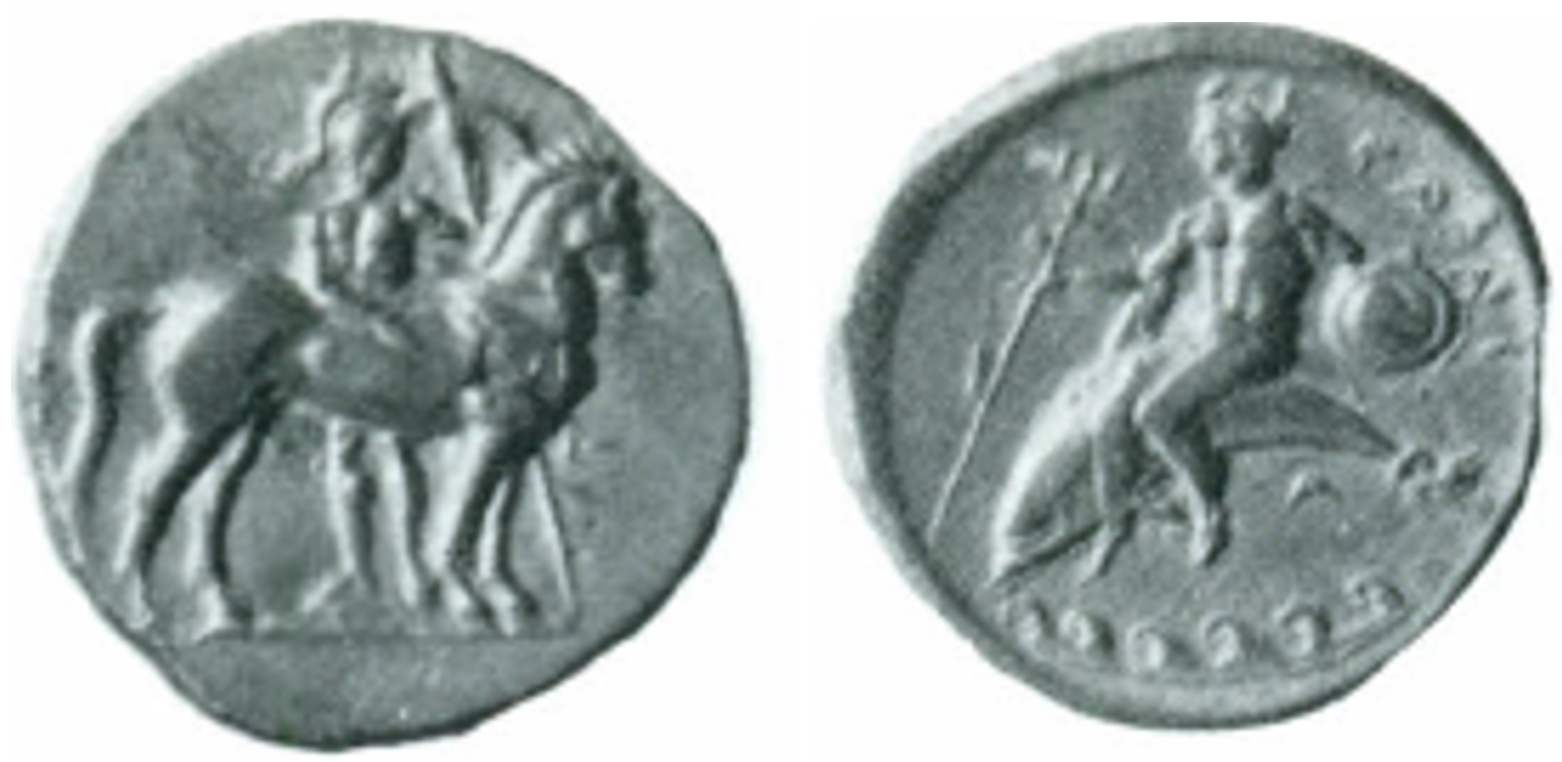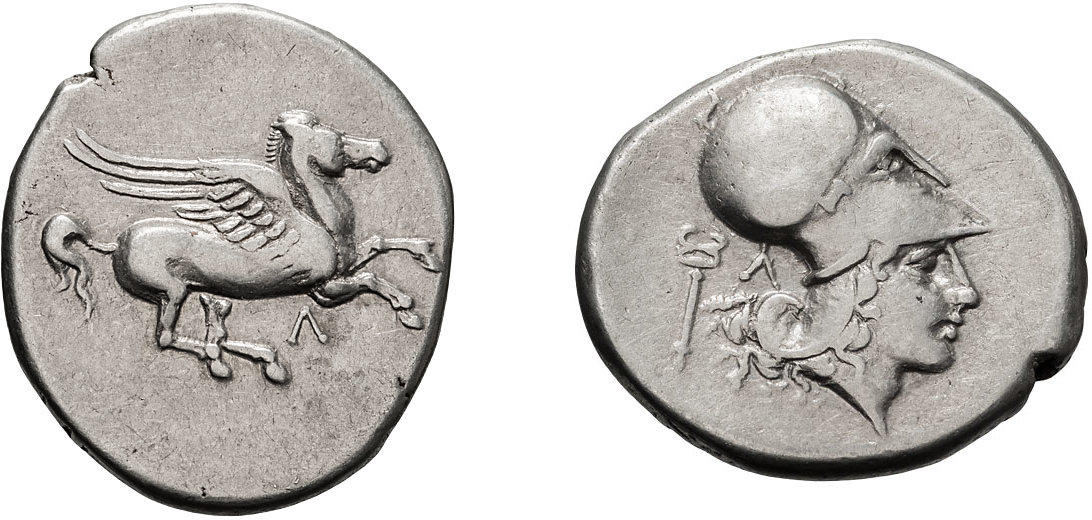345 BCE - 340 BCE | TAPAΣ
Overstriking coin
SO 1354 - Taras over Leucas.png
Overstruck variety
Leukas_(Corinthian_type).jpg
|
|
Sale(s)Sale(s) ᵖ:
|
Sternberg, 15, 11-12 Apr. 1985, 81
|
|
|
|
Description
| ObverseInscription or printing placed on the obverse.:
|
Man right, naked, wearing helmet, hoding spear with one hand, the other on a horse standing right in front of him. In right field, T.
|
ReverseInscription or printing placed on the reverse.:
|
TAPAΣ (Greek) Male character (Taras or Phalanthos), nude, seated sideways on dolphin left, holding trident and shield. Below, A and wave pattern.
|
Mint and issuing power
| MintIdentifies the place of manufacture or issue of a numismatic object.:
|
Taras
|
Ancient regionAncient region.
|
Calabria
|
Modern countryModern country: Italy
|
AuthorityIdentifies the issuing power. The authority can be "pretended" when the name or the portrait of X is on the coin but he/she was not the issuing power. It can also be "uncertain" when there is no mention of X on the coin but he/she was the issuing power according to the historical sources:
|
|
Chronology
| FromIdentifies the initial date in a range assigned in a numismatic context. 345 BCE toIdentifies the final date in a range assigned in a numismatic context.. 340 BCE
|
Classical 480-323 BC  periodTime period of the numismatic object. periodTime period of the numismatic object.
|
Physical description
MetalThe physical material (usually metal) from which an object is made.: Silver 
|
WeightWeight of the numismatic object (in grams). in grams: 7.437.43 g <br />7,430 mg <br />
|
DenominationTerm indicating the value of a numismatic object. Examples: tetradrachm, chalkous, denarius.: nomos
|
|
|
|
|
References
| Coin referenceReference of the Coin:
|
Garraffo 1989, p. 61, pl. 71, 4, Fischer-Bossert 1999, Gruppe 48, n° 61, u (V259-R528)
|
Coin series referenceReference to coin series study:
|
Garraffo 19891Garraffo 1989, p. 61, pl. 71, 4, Fischer-Bossert 19992Fischer-Bossert 1999, Gruppe 48, n° 61, u (V259-R528), HGC 13HGC 1, n° 787
|
| Coin series web referenceCoin series web references:
|
|
Description
| ObverseInscription or printing placed on the obverse.:
|
Pegasus flying (visible on obverse: slight traces).
|
ReverseInscription or printing placed on the reverse.:
|
Head of Athena
|
Mint and issuing power
| MintIdentifies the place of manufacture or issue of a numismatic object. ᵖ:
|
Leucas
|
Ancient regionAncient region. ᵖ
|
Acarnania
|
Modern countryModern country: Greece
|
AuthorityIdentifies the authority in whose name (explicitly or implicitly) a numismatic object was issued. ᵖ:
|
|
Chronology
| FromIdentifies the initial date in a range assigned in a numismatic context. 400 BCE toIdentifies the final date in a range assigned in a numismatic context.. 340 BCE
|
Classical 480-323 BC  periodTime period of the numismatic object. periodTime period of the numismatic object.
|
Physical description
| DenominationTerm indicating the value of a numismatic object. Examples: tetradrachm, chalkous, denarius. ᵖ:
|
stater 
|
|
|
References
References
- ^ Garraffo, Salvatore (1989), "Riconiazioni e cronologie in Magna Grecia", in G. Le Rider et al. (éd.), Kraay-Morkholm essays, Louvain-la-Neuve, p. 59-67, pl. 71.
- ^ Fischer-Bossert, Wolfgang (1999), Chronologie der Didrachmenprägung von Tarent, 510-280 v. Chr., Berlin, De Gruyter, xvii, 495 p., [84] pl.
- ^ Hoover, Oliver D. (2018), The Handbook of Greek Coinage Series, Volume 1. Handbook of Coins of Italy and Magna Graecia, Sixth to First Centuries BC., Lancaster-London, 2018, lxi, 527 pages, 23 cm
- ^ Calciati, Romolo (1990), Pegasi, Mortara, Edizioni I.P..

